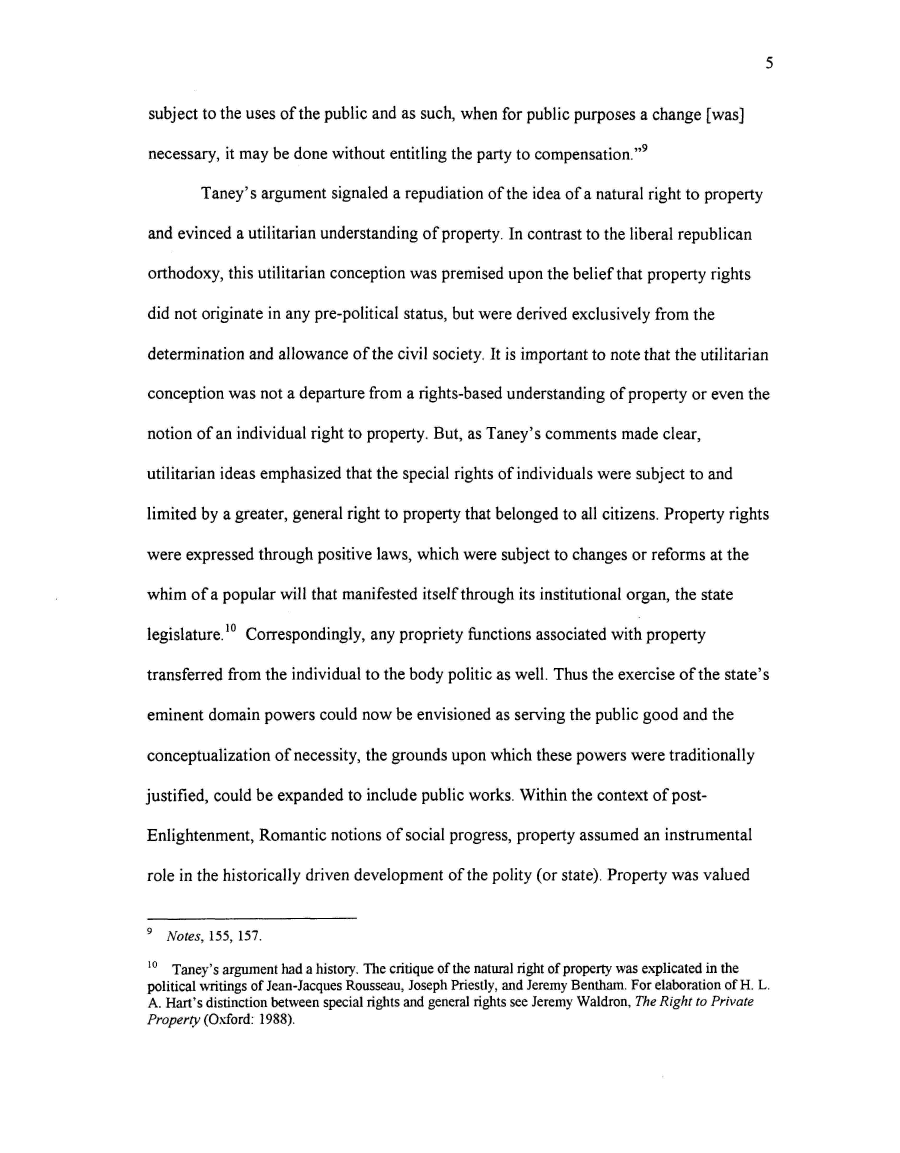|
subject to the uses of the public and as such, when for public purposes a change [was]
necessary, it may be done without entitling the party to compensation."9
Taney's argument signaled a repudiation of the idea of a natural right to property
and evinced a utilitarian understanding of property. In contrast to the liberal republican
orthodoxy, this utilitarian conception was premised upon the belief that property rights
did not originate in any pre-political status, but were derived exclusively from the
determination and allowance of the civil society. It is important to note that the utilitarian
conception was not a departure from a rights-based understanding of property or even the
notion of an individual right to property. But, as Taney's comments made clear,
utilitarian ideas emphasized that the special rights of individuals were subject to and
limited by a greater, general right to property that belonged to all citizens. Property rights
were expressed through positive laws, which were subject to changes or reforms at the
whim of a popular will that manifested itself through its institutional organ, the state
legislature.10 Correspondingly, any propriety functions associated with property
transferred from the individual to the body politic as well. Thus the exercise of the state's
eminent domain powers could now be envisioned as serving the public good and the
conceptualization of necessity, the grounds upon which these powers were traditionally
justified, could be expanded to include public works. Within the context of post-
Enlightenment, Romantic notions of social progress, property assumed an instrumental
role in the historically driven development of the polity (or state). Property was valued
9 Notes, 155, 157.
10 Taney's argument had a history. The critique of the natural right of property was explicated in the
political writings of Jean-Jacques Rousseau, Joseph Priestly, and Jeremy Bentham. For elaboration of H. L.
A. Hart's distinction between special rights and general rights see Jeremy Waldron, The Right to Private
Property (Oxford: 1988).
|

